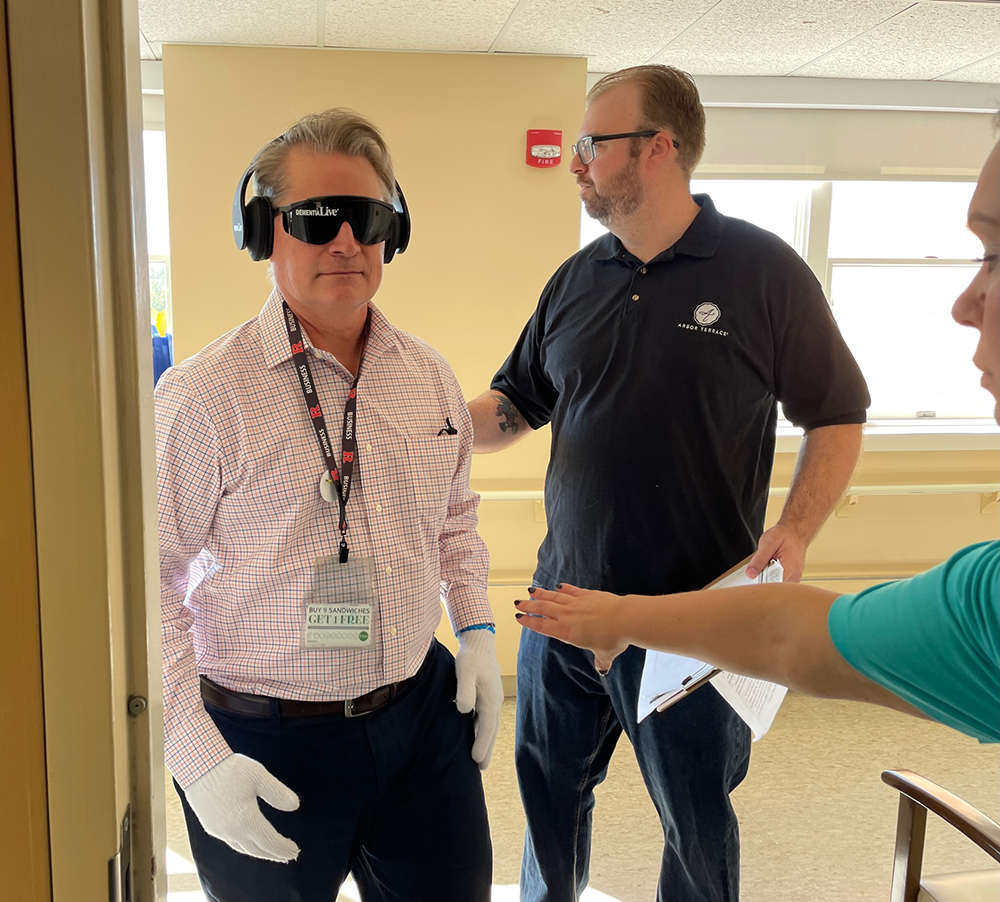Views from the Shore
By Brian Cahill
We have so many people in our Shore Medical Center community whose sole mission is to improve the lives of others. Not only have I seen it firsthand in our doctors, nurses, and clinical support staff, but I have also witnessed it in the non-clinical team as well.
Among this group is Lisa DiTroia, Shore’s Director of the Auxiliary and Volunteer program. In addition to her role at the hospital, Lisa is a key member of the Somers Point Rotary and has recently been volunteering at The Shores, a retirement and assisted living community in Ocean City.
Her time at The Shores is spent with patients with dementia. According to the Alzheimer’s Association, there are more than 190,000 people over the age of 65 in New Jersey who are living with Alzheimer’s Disease, which is one form of dementia. A significant portion of those people live in Atlantic and Cape May counties. With Shore Medical Center located just a few miles away from Ocean City, residents of The Shores depend on our hospital for medical care.
To help the hospital staff in their care of patients with dementia, Lisa brought a training program to Shore Medical Center called Dementia Live. This high-impact, dementia simulation experience immerses participants into life with dementia, resulting in a deeper understanding of what it’s like to live with cognitive impairment and sensory changes. The experience is equally as valuable for those who do not currently care for someone with dementia as it is for those who are among 272,000 people in New Jersey who do.
I decided to participate in the program. It began with instructors providing us gloves, goggles and headphones. The gloves had a bit of stickiness to them which certainly affected my ability to feel and touch. The goggles affected our peripheral vision. The headphones fed a variety of sounds and voices to impair the focus of our hearing.
As I entered the simulation room, an instructor read a list of tasks for me to complete, but with all of the noise projected into my head, I only understood a few scattered words. I got to the room and saw puzzle pieces, shirts in various stages of buttoning, dog food and a bowl, paper on the floor next to a dustpan and brush, among other things.
Unable to fully hear the instructions, I was confused and didn’t know what to do. So, I just started sweeping up the paper. When that was done, I felt I needed to do something, so I started rearranging shirts and then tried to do the puzzle but I couldn’t manipulate the pieces. I was lost. I felt completely helpless.
The simulation ended and I was led to another room, discarded my gear, and participated in a debriefing with others who went through the program. We were asked how we felt during the experiment. Words like overwhelmed, lost, confused, disoriented, anxious, scared, frustrated and inadequate were shared. The feeling we all had are the same feeling that people with dementia feel every moment of their lives.
We were all very thankful to Lisa DiTrioa for bringing this program to Shore, as it gave many of us incredible insight and a new perspective. In November (Alzheimer’s Disease Awareness month) 2024, Shore will bring the simulator back and invite the community to participate. It is something that I everyone should go through. I know I’m grateful I did 









